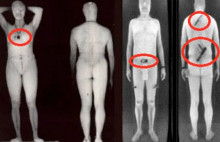18 technology and social networking companies sued for using privacy invading apps
A group of 13 individuals in the United States have filed a lawsuit against Facebook, Apple, Twitter, Yelp and 14 other companies, accusing them of distributing privacy invading mobile applications.
The lawsuit seeks a permanent injunction against such data collection and the destruction of all personal data collected by mobile application vendors to date. The plaintiffs describe themselves in the complaint as users of Apple iPhone and users of Android powered handsets.











































































